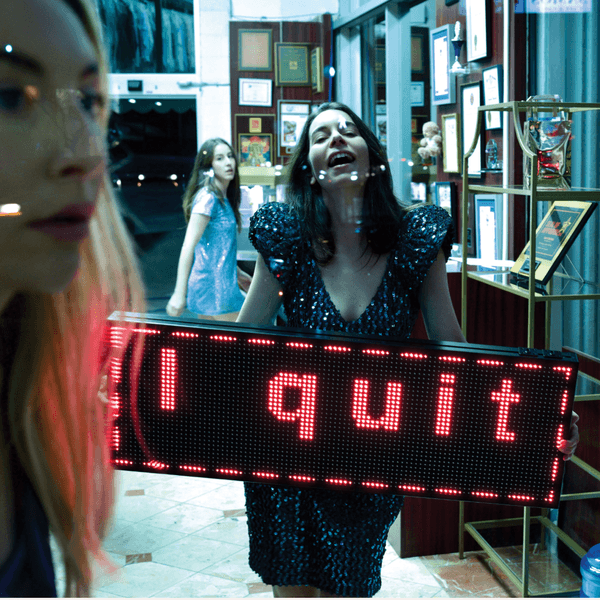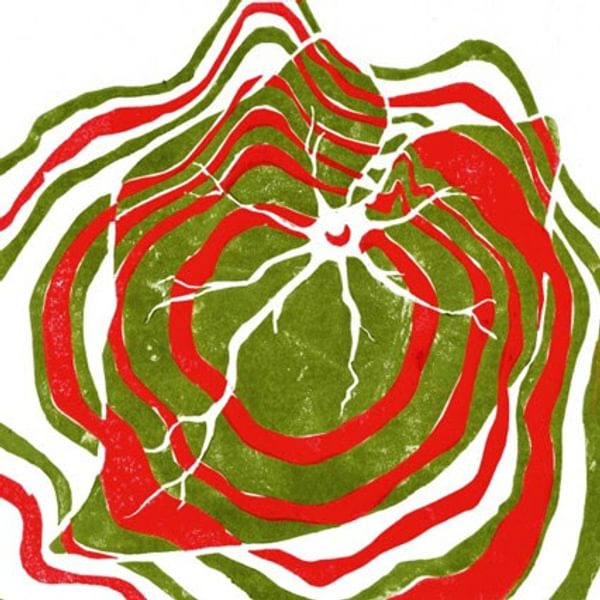
The Magic Gang discuss Death of The Party being the birth of new creative processes
“It’s the night and day version of us. Half of it is contemplation, self-examination, diary-like entries from each of us; and the other half is appreciating the good moments in life like dancing with your friends," Quips The Magic Gang frontman Jack Kaye, as he describes the overarching narrative of the indie four-piece’s second album, Death of The Party.
But before I hit play on this new improved record, I have some questions on how they ended up here...First off, how did this record come to be conceived?
“We went to a New Year’s Eve party in a massive house in Brighton. Kris and I spent our entire evening on two different floors – I was upstairs having a straightforward nice evening, feeling blissed out and dancing with my friends; meanwhile Kris was on the bottom floor having a shocker. It was two sides of the same coin, two vastly different nights in the same house,” replies Kaye, speaking of the album’s most pivotal tracks “Death of The Party” and “Make A Sound.”
Where guitarist Kristian Smith delivered the title track, recounting his disastrous night, Kaye brought disco-pop number “Make A Sound,” about his comparatively atmospheric evening. “It just so happened that they were about the same party, and they [Smith and Kaye] hadn’t discussed that at all. I feel like those two tracks were a basis, and an unexpected theme, because it came together totally by mistake,” chimes in bassist Angus Taylor.
These two tracks set the scene for the entire album: a collection of narrative, lyrically forward, autobiographical songs set against an open-minded sonic palate. The band explain how they used a blend of fictionalised and confessional accounts to broaden their creativity, stating that “both of those songs opened us up to feel like we could write about anything, to be more open and to avoid vague sentiments."
"That approach freed us up to create characters, to write through them, and then in turn allowed us to blur the lines between real experiences and fictional narratives. That was good because it allowed us to write more openly about ourselves.”
Smith especially gravitated towards fictionalising the stories in his songs. “Death of a Party” is rather about a cowboy at a fancy-dress party than about a traumatic evening, and “Gonna Bounce Back” is the tale of a delusional artist living with his parents and trying to make a comeback. Both songs fictionalise Smith as the central narrator, allowing him the distance to reflect on, and protect him from the vulnerability of his own experience.
But why fictionalise your story? Are The Magic Gang falling into the masculine stereotype of not being able to be emotionally open and vulnerable? Taylor, the band-member who makes me feel most at home within this conversation, with his lilting smile and restless energy, feels that it is an issue of ethics.
“I think more than anything, that use of fiction and avoiding vulnerability is about protecting those that you’re writing about. If I have had a difficult time with an ex-partner, or someone I don’t like, I want to veil that. It’s less about laying ourselves bare and being emotional, and more about protecting others emotional integrity.”

Yet, there are plenty of artists who have no qualms about exposing their scorned ex-partners or family members. Harry Styles’ sophomore album featured a voice note from his ex-girlfriend on the nostalgia laden “Cherry”, and Dirty Projectors dedicate the entirety of their 2017 record to berating Longstreth’s doomed relationship with fellow band member Amber Coffman. The Magic Gang don’t condemn these artistic choices, but simply take a different direction.
Meanwhile, Kaye feels that fictionalisation opens up the narrative of a song, leaving space for interpretation, relatability and mystery. “The more you over explain something, the more you marginalise your audience. People are less likely to relate to your songs because they might not have had that experience. With this record we’ve been conscious about inviting people into the songs, rather than shutting them out by saying explicitly what each track is about.”
This newfound approach has led the band to explore issues they previously weren’t ready to pen songs on. Where their self-titled debut was more a 12-part love song, Death of The Party delves into the collective or real-life experiences of 20-something contemporaries. There are themes of money anxiety, relationships, self-absorption, disappointment and fear of the future. Taylor comments that the record “encapsulated” what the band was going through in life – both enjoying the good moments and then reflecting on their intricacies.
“Take Back The Track” tells a simple story of hearing a song at a club that you love, and asking the DJ to play it again (inspired by hearing Sister Sledge at an ‘80s birthday party in Highgate); but ironically , “Fail Better” is about the creative process itself, and reflecting on how that could improve. As Smith says, “some songs are reflective, some are cosmic, and others are just about the simple things.”
We turn to their creative process. How has their songwriting changed to incorporate their new lyrical focus? Kaye answers me: “With this album, there’s a nice blend of processes. It started off like each person’s diary entries, and then it all got pulled together. This time you get a nice feel of the voice of each band member, so it feels more balanced. The last record had less of everyone on it, and more of our voices as writers. This feels like something we couldn’t have done earlier.”
Kaye passes the baton to Taylor, who identifies the purpose of their process: “Before, the process was constructing a song, then reconstructing it, but never deconstructing what we were trying to say or achieve. But with this record, we’ve really thought about what purpose we are serving with the songs and as a band. We really wanted a sense from our audience of ‘fuck, that’s The Magic Gang.’ More of an identity.”
As it turns out, there was a reason why The Magic Gang realigned their focus. They realised, with a lack of ego I am taken aback by, that they had conquered the art of writing big pop songs with big melodies, and as such were missing a more developed lyrical content. They all ruminate over this shift towards lyricism, and even drummer Paeris Giles – who up to this point has remained quiet, consuming a four pack – agrees it was needed.
The Magic Gang all agree that the new record feels more autobiographical and down to earth because it is less “vaguely romantic” than their previous work and takes itself less seriously, with a hint of humour embedded in the lyrics. They all attribute this shift to finding inspiration in the great observational lyricists of our time such as Lou Reed, Alex Turner and Jonathan Richman.

“We all really liked [Arctic Monkeys’] Tranquillity Base because of the words, and it was the first time I had heard a record and thought ‘I really like the words’ as opposed to just liking the melody. Now I’m really focused on writing songs with an interesting sentiment or finding ways to say something in an interesting way. With Death Of The Party, it was vaguely based in romance, but because of the new concept, I made it this mildly humorous, tragic story. That also lets you feel more comfortable performing, because you don’t feel like you’re baring your soul in this overbearing way. You’re using humour and character, which I think often gets a better performance out of you,” says Smith, who in conversation seems to have taken the reins on a lot of the character-heavy songs.
Meanwhile, Kaye was influenced by The Cars – less so lyrically, but more atmospherically. How does their influence present itself?
“By not being overly clever with chords, but writing music that is up front, road rocky, fun, doesn’t take itself too seriously. The kind of music that you can imagine performing on stage when you’re writing it, and makes you embrace the character and bravado of the songs.”
Smith felt a kinship with The Clash, as a project. “We love that they, as three guys in a band, are the template, but they can do what they want with their music because ultimately it is The Clash making music.”
And so, to bring us up to date with the journey Death of a Party has taken The Magic Gang on: How important are influences to making music? Taylor says,
“There’s no such thing as a blank slate. Creativity is taking what you already know and doing something different with it. I’d argue that there is no music that is entirely brand new.”
Forever the frontman, Kaye agrees: “The majority of my influence is subconscious. You’d have to be so astute to harvest all your influences consciously. So much comes down to the stuff you don’t realise is creeping in.” Giles continues to nod and drink, while Kris poetically states: “I view it more akin to woodwork than painting – because it’s more about refining than ideas. A lot goes into it beyond inspiration. You have to see it more as a craft than an art. Creativity and genius comes in how it’s assembled, instead of the spark.”
“We are embracing the fact that although we are four guys in an indie band, we are still channelling music we love, and we are going to have a go at making it.”
Get the Best Fit take on the week in music direct to your inbox every Friday








